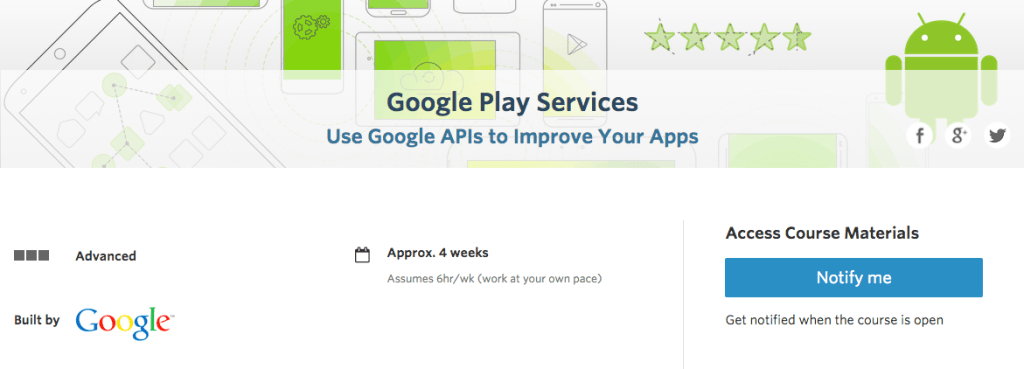
At its I/O developer conference in San Francisco, Google today announced that it has partnered with Udacity to launch a six-course Android development nanodegree.
The idea here is to help developers learn how to write apps for Google’s mobile operating system “the right way” up to the point where they could potentially be hired by Google itself. Clearly then, this is not a course for beginners, but for advanced developers who want to add
Just like Udacity’s other degree programs, students can watch all of the video content for free, but if they want to get a certificate and access to teaching assistants, they will have to pay a fee, which is $200 for this course (though if they complete the degree, they can get half of their money back).
As Sebastian Thrun, Udacity’s co-founder and CEO told me ahead of the announcement, developers will have to finish six courses and a number of projects to get their degree. One of those courses, for example, will ask the students to use the Spotify API in an app. The focus here, as with many of Udacity’s other programs, is on practical knowledge and in many ways, the projects are far more important than the actual courses. “We want to get them to the point where they can show how good they are through their work and not through a multiple choice test,” Thrun said. “It’s best to think of this as the stuff that Google wants its developers to know.”
Completing the degree should take between six and nine months, but while the starting date is set, students can finish their courses and projects at their own pace.

To show its commitment to this project, Google will invite fifty students to a three-day summit in Mountain View at the end of the year. This summit will include a hackathon, as well as meetings with hiring engineers, so Google clearly plans on hiring at least a few of the students in this course.
In addition, Google has partnered with the Government of Egypt to localize the six Android courses that are part of this degree into Modern Standard Arabic. For the first time in Udacity’s history, this doesn’t just mean subtitling the videos, but actually adopting all of the the courses’ content to one specific region.
Google will offer 2,000 scholarships for students in Egypt and host job fairs and sessions for students there. Thrun noted that Udacity sees Egypt as a great stepping stone to bring the course to students around the Arabic-speaking peninsula and that he believes that bringing good education — and the good jobs it will hopefully enable students to get — “could reduce the number of wars” in the area.

from TechCrunch http://feedproxy.google.com/~r/Techcrunch/~3/LXGRpnLJu6I/
via IFTTT







0 коммент.:
Отправить комментарий